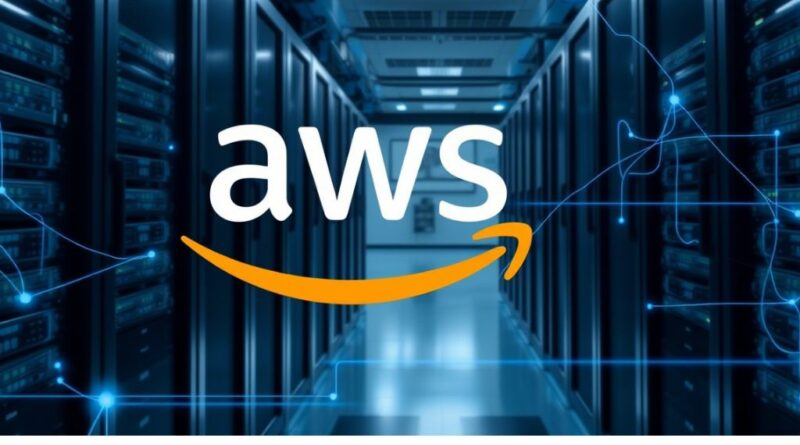What is AWS? Demystifying the Cloud Giant
In the ever-evolving world of technology, few names resonate as powerfully as Amazon Web Services, or AWS. But what exactly is AWS, and why has it become such a cornerstone of the digital age? Whether you’re a tech enthusiast, a business owner, or just someone curious about the cloud, this article will break down what AWS is, how it works, and why it matters.
The Basics: AWS in a Nutshell
At its core, AWS is a comprehensive cloud computing platform provided by Amazon. Launched in 2006, it was one of the first companies to offer scalable, on-demand cloud services. Today, AWS dominates the cloud market, offering over 200 fully featured services to millions of customers worldwide, from startups to Fortune 500 companies.
But what does “cloud computing” actually mean? In simple terms, cloud computing is the delivery of computing services—like storage, databases, servers, networking, and software—over the internet (the “cloud”). Instead of owning and maintaining physical servers or data centers, businesses can rent access to these resources from providers like AWS, paying only for what they use.
The AWS Ecosystem: More Than Just Storage
While many people associate AWS with cloud storage (thanks to its popular S3 service), the platform is far more expansive. AWS provides a vast array of tools and services designed to meet virtually any computing need. Here are some of the key categories:
- Compute Services: AWS offers scalable computing power with services like Amazon EC2 (Elastic Compute Cloud), which allows users to run virtual servers in the cloud. Need more power during peak times? No problem—AWS scales up or down automatically.
- Storage Solutions: Amazon S3 (Simple Storage Service) is a household name for storing and retrieving data. AWS also provides services like Glacier for long-term archival storage and EBS (Elastic Block Store) for high-performance block storage.
- Databases: From relational databases (Amazon RDS) to NoSQL options (Amazon DynamoDB), AWS has a database solution for every use case.
- Networking: AWS provides tools like Amazon VPC (Virtual Private Cloud) to create isolated networks in the cloud, ensuring secure and seamless connectivity.
- Machine Learning and AI: AWS offers cutting-edge AI services like SageMaker for building machine learning models, Rekognition for image and video analysis, and Polly for text-to-speech capabilities.
- Internet of Things (IoT): AWS IoT Core allows businesses to connect and manage billions of IoT devices securely.
- Developer Tools: AWS supports developers with tools like CodeBuild, CodeDeploy, and CodePipeline to streamline the software development process.
- Security and Compliance: AWS takes security seriously, offering tools like IAM (Identity and Access Management), encryption services, and compliance certifications to protect customer data.
Why AWS? The Benefits of the Cloud
So, why are so many businesses flocking to AWS? Here are some of the key advantages:
- Scalability: AWS allows businesses to scale resources up or down instantly, ensuring they only pay for what they need. This is particularly valuable for companies with fluctuating workloads.
- Cost-Effectiveness: By eliminating the need for upfront hardware investments and reducing maintenance costs, AWS helps businesses save money.
- Global Reach: With data centers in over 30 geographic regions worldwide, AWS enables businesses to deploy applications closer to their users, reducing latency and improving performance.
- Reliability and Security: AWS boasts a 99.99% uptime guarantee and employs some of the most advanced security measures in the industry.
- Innovation: AWS constantly rolls out new services and features, allowing businesses to stay ahead of the curve in a rapidly changing tech landscape.
Real-World Impact: Who Uses AWS?
AWS isn’t just for tech giants—it’s used by organizations of all sizes and industries. Here are a few examples:
- Netflix: The streaming giant relies on AWS to deliver content to millions of users worldwide, leveraging its scalability and reliability.
- NASA: AWS helps NASA store and analyze vast amounts of space data.
- Airbnb: The platform uses AWS to handle its massive database of listings and user interactions.
- Startups: AWS’s pay-as-you-go model makes it an ideal choice for startups looking to minimize costs while scaling quickly.
The Future of AWS
As cloud computing continues to reshape the world, AWS shows no signs of slowing down. With advancements in AI, machine learning, edge computing, and quantum computing, AWS is poised to remain at the forefront of innovation. Its commitment to sustainability, including a goal to power its operations with 100% renewable energy, also reflects its dedication to a greener future.
Conclusion: The Cloud Powerhouse
In a world increasingly driven by data and digital transformation, AWS has emerged as a critical enabler of innovation. Whether you’re building the next big app, analyzing vast datasets, or simply storing family photos, AWS provides the tools and infrastructure to make it happen. It’s not just a service—it’s a revolution in how we think about computing.
So, the next time you stream a movie, book a vacation rental, or even check the weather, remember: there’s a good chance AWS is working behind the scenes, powering the digital experiences we’ve come to rely on. The cloud is here to stay, and AWS is leading the charge.




